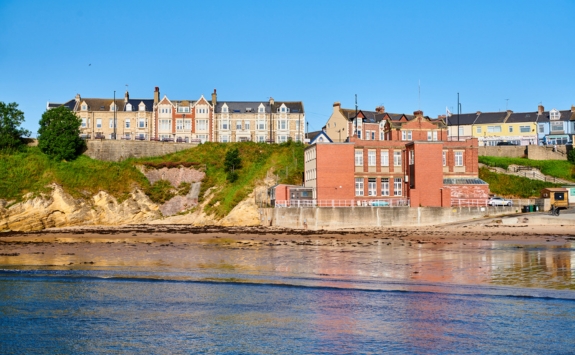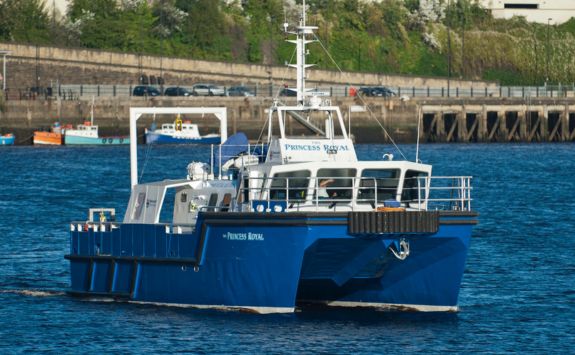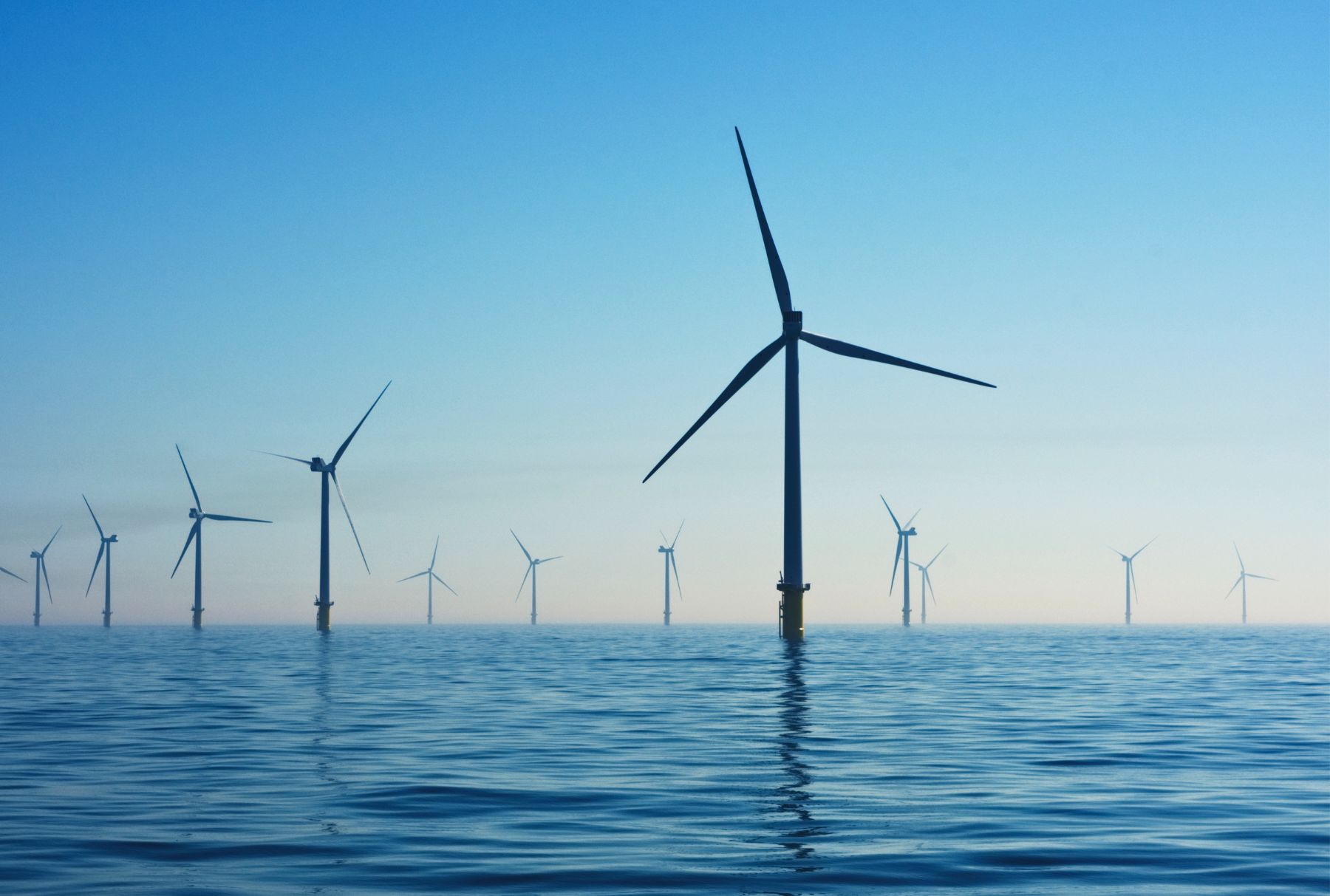Offshore wind facilities, equipment, and services
Our laboratories and technical experts are on-hand to help with your testing and investigation needs.
From marine science to power engineering, our laboratories and expert staff can help with R&D, testing and investigations in:
- chemical and surface analysis
- gear technology and mechanical power transmission systems
- hydrostatic and hyperbaric pressure testing
- marine hydrodynamics, propulsion and coatings
- marine science and consenting
If you would like to discuss how you can work with any of the services and facilities described on this page, please contact us.
Emerson cavitation tunnel
A specialist flume for hydrodynamic research of:
- propellers
- turbines
- foils
- bluff bodies
- coatings innovations
The test section is 3.1 metres long and has an adjustable working cross section of 1.2 x 0.8 metres.
Atmospheric pressure within the tunnel can be adjusted to enable analysis and visualisation of cavitating flow.
Slime farm
The slime farm cultivates different types of biofouling within the lab.
It is a seawater circulation system for simulating the in-service growth of microorganisms, plants, algae and animals on coated surfaces in seawater.
This facility is run in collaboration with AkzoNobel / International Paints.
Flow cell
This is a smaller flume with similar capabilities to the multi-purpose flume.
The flow cell can be run with the same insert plates used in the multi-purpose-flume and the Emerson cavitation tunnel. It can also accept small scale inserts. This makes the flow cell an efficient device for new concept development within coated surface hydrodynamics research.
Towing tank
The towing tank can be used for calm water, wave resistance, and seakeeping experiments.
Recent upgrades include the installation of a state-of-the-art motor control system to enhance very slow speed and high-speed testing capabilities as well as the latest wavemaker control software.
A recent innovation is a modern telemetry system which allows data sampling without any wired connections between the carriage and shore-based equipment.
Specifications
- Tank length: 37 m
- Width: 3.7 m
- Water depth: 1.25 m
- Normal Carriage velocity: 3 m/s
- Wave capability:
- Period range: 0.5 - 2 Sec
- Wave height: 0.02 - 0.12m (period dependent)
Wind, wave and current tank
The Wind, wave, and current tank is designed for small scale model testing of renewable energy devices. It is also suitable for standard resistance, seakeeping and wind loading experiments.
Testing capabilities
- wind loading on wet and dry structures
- resistance measurements
- seakeeping tests
- combined wind, wave and current interaction
- flow visualisation experiments
Specification
- Flume length: 11 m
- Width: 1.8 m
- Normal water depth: 1 m
- Air clearance: 1 m
- Central measurement section: 3 m
- Maximum water velocity: 1 m/s
- Maximum wind velocity: 20 m/s
- Wave capability:
- Spectra: Pierson-Moskowitz, JONSWAP, Bretschneider, Neumann
- Period range: 0.8 - 4sec
- Wave height: 0.02 - 0.12m (period dependent)
Hyperbaric and hydrostatic testing
The National Centre for Subsea and Offshore Engineering is an advanced research and testing facility based in Wallsend on the banks of the River Tyne.
Also known as Tyne Subsea, the facility houses a large vertical hyperbaric chamber that is ideal for testing long pipe samples.
You can commission or undertake long-and short-term hyperbaric testing up to 630 bar / 9267 psi, simulating extreme subsea conditions.
We provide competitive pricing and can offer flexibility to meet your project timelines. The chamber enables assessment of product performance and safety in high-pressure environments.
By pressurising the chamber with water, we replicate real-world operating conditions. This is critical for verifying reliability and preventing
failures in subsea and other high-pressure applications.
You can also access wider hydrostatic and hyperbaric testing facilities through the Tyne pressure testing partnership we share with British Engines.
To discuss your testing requirements, please contact neptune@newcastle.ac.uk.
What you can access
Services and facilities you can access include:
- water ingress testing
- instrumented buoyancy loss (IBL)
- hydrostatic compression and creep
- hydrostatic collapse
- 1O tonne overhead crane
- complimentary use of customer offices, breakout areas and meeting rooms
- high speed internet access
- potential to create and procure bespoke removable plate (diameter 540mm x 220mm deep nominal footprint) to suit your connection preference
Gear technology
The Design Unit is a specialist centre with expertise in mechanical power transmission systems. It is also home to the National Gear Metrology Laboratory, the UK’s National Measurement System designated institute for gear measurement.
For more than 50 years the team has provided design, development, and consultancy services to industrial engineering customers around
the world. Services include:
- gear stress analysis, design and specification
- transmission design and development
- mechanical testing
- failure analysis
- metrology
Marine science and consenting
The Dove marine laboratory in Cullercoats is dedicated to the study of marine biology, oceanography, environmental science, and coastal processes.
The lab can help you to understand the complex interactions between marine life and their environment, and contribute to the conservation and management of marine resources.
Facilities at the lab include:
- deep water tanks, with a water depth of 3m
- main aquarium for large-scale experiments
- five experimental cabinets for smaller tank experiments
.

Research vessel Princess Royal
The University's research vessel, Princess Royal, is available for commercial charter.
The flexible nature of the vessel platform makes her ideally suited for:
- wind-farm support
- marine mammal and bird survey
- servicing of moored oceanographic equipment
- EIA support work such as benthic trawling, sediment sampling and habitat mapping
She is also fully equipped to support a broad range of maritime research in both the marine science and engineering fields.
If you are interested in chartering the Princess Royal in support of your work we are happy to discuss your requirements, please contact marineoutstations@newcastle.ac.uk.

